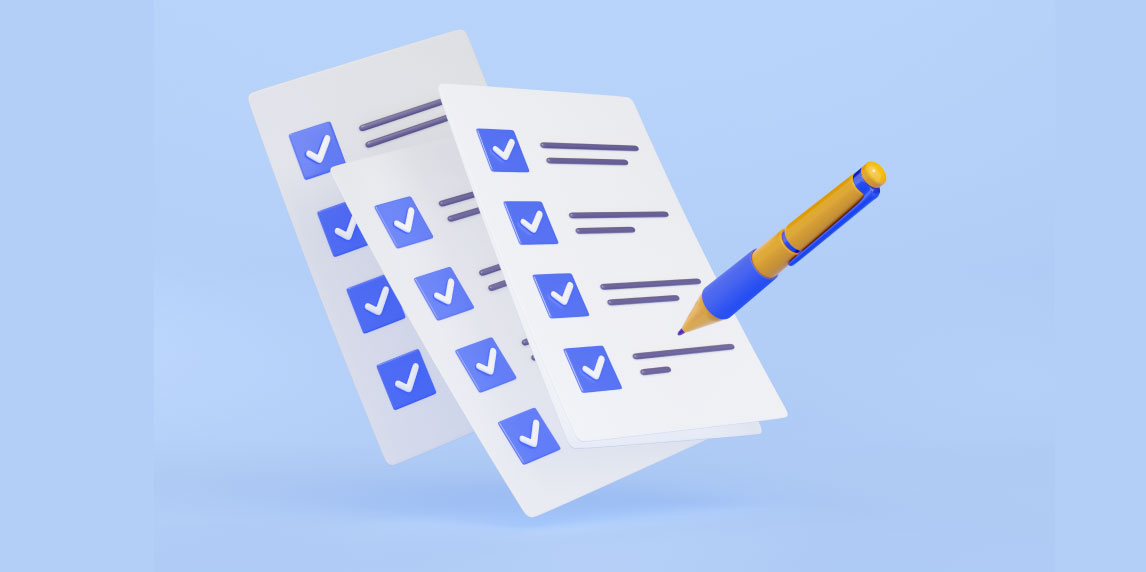Have you been window shopping for RPA vendors lately? How was your experience evaluating vendors? Complicated or very Complicated? I wouldn’t blame you if you are finding it difficult to zero in on a vendor. The technology bazaar is filled with so many options that it can get as confusing as deciding on lunch from an extensive restaurant menu.
Here’s what will help you navigate around similar-looking vendors – A simple checklist. Yes, having a checklist of critical parameters that need to be considered when making the decision will help avoid a bad choice and help you automate your business process successfully.
1. Technical skills
In a fast-changing world, skill updating is a non-negotiable factor. When you are shortlisting vendors, you need to observe their learning curve. The team should be open to learning continuously and update themselves to cater to customer demands. Do ask for a skill matrix of the team involved in the creation of the tool. This will probably be the team that will also provide you support and understanding their competence is crucial to your automation project.
2. Clear Communication Protocol
Clear and concise communication is key to any successful project. A good automation solutions provider would ensure that proper communication protocols are established at the start of any project to avoid confusion and discrepancies. Daily, weekly and monthly meetings need to be scheduled, conducted, and followed up as needed.
When expectations are communicated at the start of the project, it saves time and effort.
3. Ease of Use
While a lot of automation tools exist, not all of them are built with the business user in mind. Look for a provider who proactively states that the workflow can be designed, and bots deployed by the non-technical business user. By using user-friendly RPA tools businesses can help in chipping away at the bad image that RPA has of taking jobs away. When employees understand the ease and the value that automation can bring to their job every day, it will help in better acceptance and consequently better growth. For Automation to succeed, it should be child’s play.
4. Well Structured Training Process
An automation solution is successful when the knowledge transfer is thorough and complete. The KT also needs to be complemented with a well-designed training process to manage the tool. As a potential client, you can ask for a glimpse of the training process before zeroing in on a vendor. User training tools like release notes, video tutorials, best practices, etc need to be documented and shared at the outset.
5. Customer Support/ Maintenance
A product is only as good as the customer support which follows the sale. It’s crucial that the terms for customer support and maintenance are clarified at the go. This step will help in providing an enhanced customer experience which is vital to building an image as a reliable RPA brand.
6. Industry Expertise
Industry-relevant experience is one quality that seals the deal for most prospects. An RPA vendor who has substantial experience in the prospect’s industry has better chances of being chosen than someone who is not. Industry expertise helps the automation vendor understand the nitty-gritty, the bottlenecks of the processes, and design the appropriate solution considering the complexities of the industry.
6. Security Standards
Every business must ensure Avant grade data security to protect sensitive data belonging to its customers or even its own business process. An able RPA vendor must factor this into the tool to make it attractive to the user. It is important to save the process and results of the automation workflow which can be referred to in case of an audit. Information regarding the number of processes automated, glitches encountered, etc can be used to improve the tool and hence the customer experience.
7. Scalability/ Reusability of workflow
‘How easily can I scale your RPA product?” or “Can I replicate the workflow in across departments? These are the kind of questions you should be asking a potential RPA Vendor.
Scalability is one of the key features of any RPA tool. It is important to ensure at the very beginning that the RPA product that you are eyeing has enough elasticity to scale up as per demand, and the flexibility to be replicated across functions. A high scalability quotient will ensure that the RPA tool will be used optimally without much downtime and the business user will be able to use it easily if the transaction volumes increased due to external factors like demand and supply.
Apart from just solving the problems that you are riddled with, an ideal automation partner should be able to anticipate challenges that can arise during the process and suggest optimal solutions to overcome these challenges. A technology partnership is a long-term relationship and not a short-term one. It is absolutely essential to do your due diligence before signing the deal with your automation vendor to ensure that they meet all the parameters listed by your organization’s leadership.
You may want to read this post on how to not get overwhelmed by automation and take it one step at a time: https://blog.rapidautomation.ai/keep-calm-and-automate/




